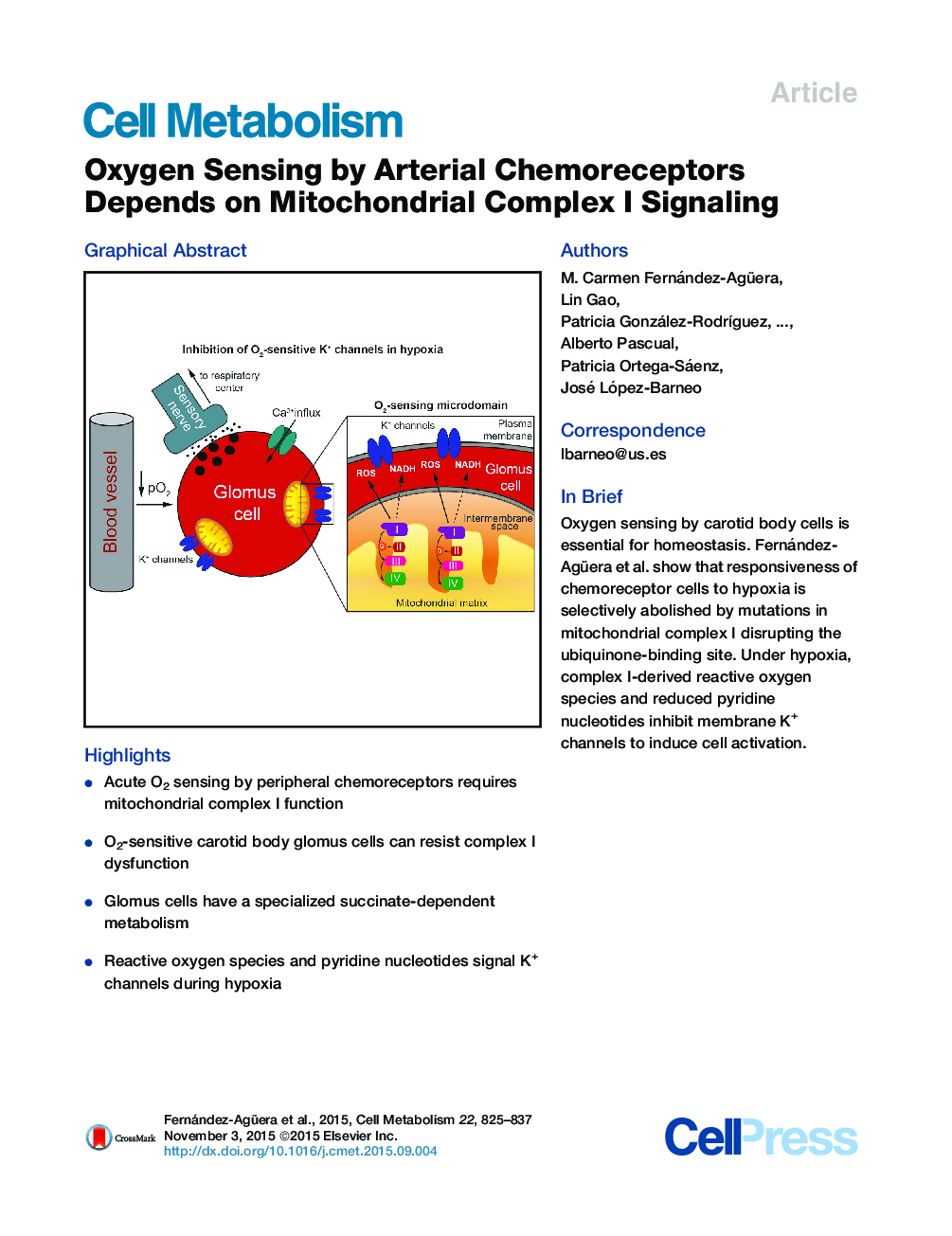| کد مقاله | کد نشریه | سال انتشار | مقاله انگلیسی | نسخه تمام متن |
|---|---|---|---|---|
| 2792555 | 1155063 | 2015 | 13 صفحه PDF | دانلود رایگان |
• Acute O2 sensing by peripheral chemoreceptors requires mitochondrial complex I function
• O2-sensitive carotid body glomus cells can resist complex I dysfunction
• Glomus cells have a specialized succinate-dependent metabolism
• Reactive oxygen species and pyridine nucleotides signal K+ channels during hypoxia
SummaryO2 sensing is essential for mammalian homeostasis. Peripheral chemoreceptors such as the carotid body (CB) contain cells with O2-sensitive K+ channels, which are inhibited by hypoxia to trigger fast adaptive cardiorespiratory reflexes. How variations of O2 tension (PO2) are detected and the mechanisms whereby these changes are conveyed to membrane ion channels have remained elusive. We have studied acute O2 sensing in conditional knockout mice lacking mitochondrial complex I (MCI) genes. We inactivated Ndufs2, which encodes a protein that participates in ubiquinone binding. Ndufs2-null mice lose the hyperventilatory response to hypoxia, although they respond to hypercapnia. Ndufs2-deficient CB cells have normal functions and ATP content but are insensitive to changes in PO2. Our data suggest that chemoreceptor cells have a specialized succinate-dependent metabolism that induces an MCI state during hypoxia, characterized by the production of reactive oxygen species and accumulation of reduced pyridine nucleotides, which signal neighboring K+ channels.
Graphical AbstractFigure optionsDownload high-quality image (182 K)Download as PowerPoint slide
Journal: - Volume 22, Issue 5, 3 November 2015, Pages 825–837
